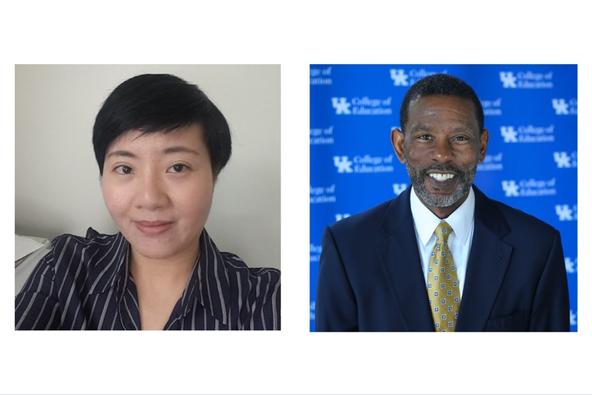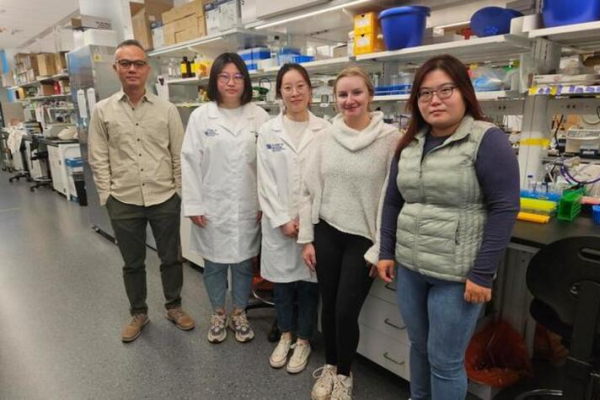UK College of Education Faculty Published in the ACTA Scientific Medical Sciences Journal

People with disabilities already experienced disparities in medical care, but the rapid shift to online-only medical appointments during the COVID-19 pandemic created additional barriers for many, according to a paper published by University of Kentucky College of Education faculty in the ACTA Scientific Medical Sciences journal.
"Using technology to connect with medical professionals created new issues and exacerbated existing ones for people with physical, mental, or neurodevelopmental disabilities," said lead author Si-Yi (Jessica) Chao, a visiting scholar in the UK College of Education's Department of Early Childhood, Special Education and Counselor Education. "Health care providers must be aware of various populations' needs and adapt to meet those, as well as show sensitivity. For example, for people with sensory disabilities, such as deafness or blindness, accommodations are necessary. Medical providers should be thinking about how they communicate, such as watching how on-screen facial expressions convey info, shifting interpreter services to the online space, or using closed captions."
"People with disabilities encounter negative social attitudes and structural inequities, hindering their access, even in the best of times, to necessities like employment and health care services," said Keith B. Wilson, paper co-author and a professor of rehabilitation and counselor education in the UK College of Education.
During the pandemic, some did not have access to a computer or smart phone and high speed internet service to connect with a doctor. Social supports they had in place prior to the pandemic may have ended due to social-distancing needs or a lack of transportation. Moreover, many people with disabilities live with chronic disorders and underlying health conditions, so having unsecured health and safety needs during the pandemic exaggerated their physical, psychological and emotional distress.
"This loss of access has made people with disabilities more vulnerable to all health concerns, including the possibility of contracting COVID-19," Wilson said.
For those who did connect with a medical provider, the experience may have been difficult.
“People with intellectual disabilities often feel ignored if practitioners talk to their attendants, instead of communicating with them,” Chao said. “Many are very capable of handling their health care when the provider can make accommodations, such as not talking too fast, providing sufficient response time for patients, not providing too much information at one time, and using understandable language for explanations. This is even more important when meeting remotely, via telehealth.”
Wilson and Chao are focused on raising awareness of unmet needs and increasing actions to improve the lives of people with disabilities. Chao began her career as a physical therapist in Taiwan where she worked with people with brain and spinal cord injuries and other neurological impairments.
"Most of my training in physical therapy only focused on physical activity, but I found I could not fully serve my client solely from that view. Treatment should be about the whole person. Maybe a client is having difficulty processing the trauma associated with how they acquired a disability. They might be experiencing issues with family members who are serving as caregivers, or having difficulty with personal assistants. I left my job in Taiwan and came to the U.S. to pursue a master's degree and Ph.D. in rehabilitation counseling so I can integrate my knowledge base in the medical system with community-based applications," she said.
For Wilson, making a difference means not just advocating for people with disabilities himself, but helping others — including those with disabilities — gain the knowledge and skills to become advocates.
"I've been in the field for 35 years and worked as a tenure track faculty member for 21 years. I've always been involved and interested in research focused on people who are minorities or who are considered marginalized. That includes women, people with disabilities, people who have different racial and ethnic identities, or those who might be part of underrepresented groups of individuals, the LGBT community and so forth," he said.
Wilson said awareness of what marginalized people experience is growing, through social media and news coverage of high-profile instances of discrimination, racism and violence, but that awareness, many times, doesn't equate to people doing the right thing regarding diversity-related issues.
“We were raised feeling people who look like us are the ‘right’ people or the ‘good’ people in almost every culture. So while we cognitively know there are people who are not always treated well and that we need to improve this, it doesn’t equate to us taking action. Because we may have grown up thinking people with disabilities are not smart or that they cannot do the same things able bodied people can do.”
“We have all these requirements now for folks to take multicultural classes, which include understanding how to advocate for people with disability, but why do we continue to see the unemployment rate for folks who have disabilities be twice, sometimes three or four times, higher than able bodied people? Things continue to be tough, and I think it will start to get better when people who are in authority positions can actually see the potential of people with disabilities and others who are marginalized, even provide opportunities for their performance.”
The Counselor Education (formerly Rehabilitation Counseling) program at the UK College of Education is consistently ranked among the top 10 programs in the nation by U.S. News & World Report. The program offers a bachelor of arts degree in interdisciplinary disabilities studies, a master of arts degree in counseling (with a specialty in clinical mental health counseling or rehabilitation counseling), a doctoral degree in rehabilitation counseling (with a focus on rehabilitation research, policy and education), and a graduate certificate in rehabilitation counseling (to supplement training in a variety of fields).
Credits
Amanda Nelson (College of Education)

